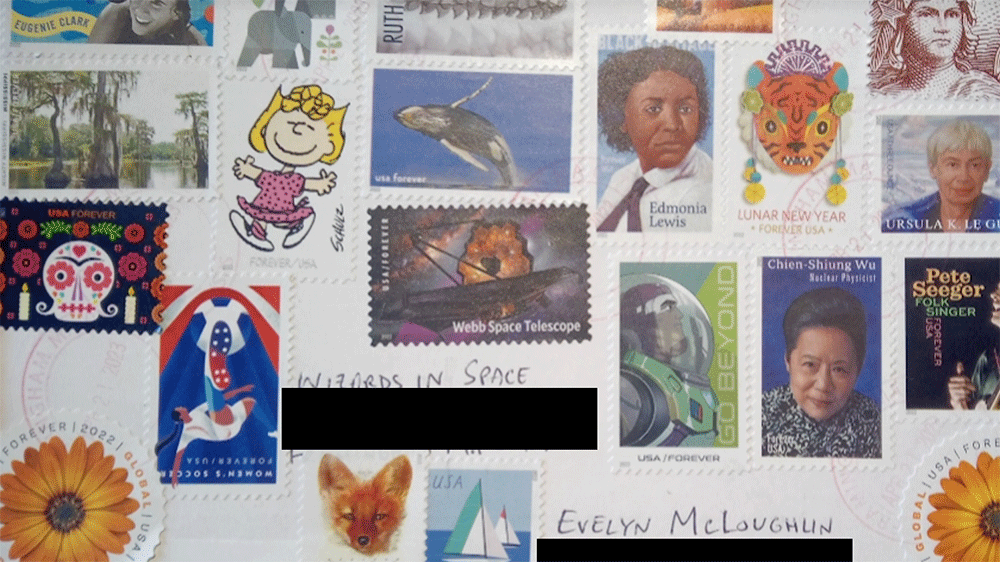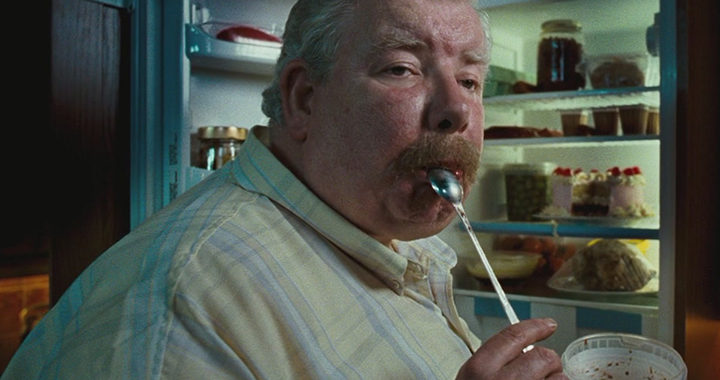Join hosts Irvin, Sam, and Sophia and guest Ev McLoughlin as they discuss chapter 3 of Goblet of Fire: The Invitation.
In this episode:
- The Sorting Hat is a matchmaker!
- What’s the worst chapter title in the HP series?
- What garment does Harry hide his illicit cakes in?
- Vernon Dursley, inventor extraordinaire
- Hermione’s floppy disk of cakes
- Why did Henry VIII invent the Royal Mail?
- Arthur Weasley might be a kleptomaniac
- Does Lucius Malfoy eat Muggles?
- Self-interest versus spite
- Why is Harry so averse to shopping?
Resources:
As mentioned by our guest Ev McLoughlin:


Delighted to be on the episode! I kept having thoughts about it for days afterward.
Hey! I’m not a Nevillish-Gryffindor!
(though Sam wasn’t on episode 6, so he hasn’t met me)
Alternative takes on sorting are fun. I quite like the one from “somethingtodowithpotter” on tumblr which differentiates houses by their view of magic. In brief:
Oooh, I really like that breakdown! It really captures so much of their attitudes at Hogwarts.
The treatment of overweight characters is certainly obvious (especially given every book starts with the Dursleys), but it’s part of a general trend of negative descriptions of “bad” characters, even if they have the same/similar traits as “good” characters.
As you mention, Mrs Weasley is rotund but doesn’t get the fat-shaming. Neville (pre-glowup) is described as chubby, and while early-books Neville is often the butt of the joke, it’s for being bad at magic, not about his weight.
Snape is given grief for his hooked nose (which isn’t a bad thing – see Claudia Black, for example), yet little mention is made of Dumbledore’s mis-set nose, especially given we know (from Half-Blood Prince) a broken nose is easily fixed.
If we think of books as being mostly from Harry’s point of view, it makes sense that the physical attributes of people he likes do not come across the same way as the same physical attributes belonging to people he doesn’t like. So it’s less of a judgment of the appearance itself and more of a commentary on how he feels.
Good point – so who should we be calling out for fat-shaming? Harry, or the author? (characters’ viewpoints are not necessarily shared by their authors, after all)
Because if it’s just Harry, an adolescent thinking rude thoughts about someone that’s bullied them for years (and not being as rude about other larger characters), I’m inclined to give him a pass.
But if it’s the author using a character to express their own negativity towards certain traits, that’s more of an issue.
I am inclined towards the former. I don’t believe the latter is really true though since we have an assortment of both good and bad characters in all shapes.
Seconded here – I think it’s definitely Harry being judgy himself, which is understandable.
Secret option three: society at the time. Luckily there’s been a cultural shift away from normalized fat shaming. But demonizing gluttony is steeped in religious traditions (notably seven deadly sins but I’m no expert on religion). While today it’s inappropriate (and irresponsible considering the scale of her audience) to perpetuate fat shaming, normalized and direct fat shaming are things that the author grappled with in her 30 odd years lived before any sizable anti-fat-shaming social movement. Her unacknowledged biases simply leaked into text. I’m sure we’ll find dozens more as society continues to progress and more biases are brought to light from society’s subconscious.
Good point. I’m sure a lot of us (if we’re old enough!) look back at our previous attitudes/opinions and think “I wish I’d known better”. I certainly do.
thanks! it’s still interesting to observe which characters frequently get a weight-based description. You bought up Snape in your OP in this thread, and I think he’s one of the few characters that didn’t often get body size / weight-based descriptions. Maybe there are others?
I suspect it’s one of those subconscious default situations (e.g. like where characters are assumed to be white unless specified otherwise), where weight is only pointed out when characters have more than average.
Having said that, I recall Harry at least being described as particularly thin (“stretched”?) after one of his growth spurts. Given his upbringing, Harry is likely very wirey, but I don’t remember if this is mentioned very often.
I love the racial descriptor parallel. Are you then suggesting that characters are assumed thin unless otherwise stated?
I think I remember the ~stretched~ description but struggling to find the precise phrasing on potter-search. There seemed to be a comment every book about ron getting taller or ganglier over the summer…maybe it as in reference to ron.
I was suggesting that, but in searching for the Harry description I’ve already seen counter-examples (so much for that theory!).
Found the description I was thinking of: OotP introduces Harry with a “pinched, slightly unhealthy look of someone who has grown a lot in a short space of time”.
It wouldn’t surprise me if there were similar descriptions of Ron elsewhere.
Random thoughts:
Oh my god, please let’s have a short film or short story about the perplexed thrift store owner next to Diagon Alley! That’s hilarious.
I’m all here for the chapter title critique – especially using the angle the hosts took: considering JK’s decisions based on the context of what as going on in her world at the time. Fully agree with the reasoning for why the titles of GoF weren’t as good as OoTP. I personally think PS/SS had the best set of chapter titles of all the books, which makes sense – she had the most time to develop that book and needed to actually “market” it to potential publishers. I would love to use this lens more often in all aspects of Potter analysis. Speaking as a vey typical, non-Nevillish Gyffindor who would love to come on the show 🙂 The winner for Lamest Chapter Title in my opinion is CoS “The Very Secret Diary”
Nope I take it back, OoTP has the best set of chapter titles
I’m really glad you liked that! I also thought it was a fun topic to discuss.
I think we try to keep Rowling’s historical context in mind for Potter analysis, but there is a line to be drawn between historical context and armchair psychology, so I try to tiptoe carefully around that line. Just speaking as a writer myself, I wouldn’t care for readers trying to figure out what’s going on in my life as a commentary on my books!
You raise a good point about Sorcerer’s Stone needing to be a bit better than the others, but I find its titles to be a very mixed bag. For every banger (“Letters From No One,” “The Midnight Duel”) there are some absolute clunkers (“Halloween,” “Quidditch”).
I think “Very Secret Diary” is almost entirely redeemed by being mirrored in Half-Blood Prince with “Secret Riddle” – anything becomes cooler when part of a ring!
P.S. If you want to be on the show, we’d love to have you! Check out the “Contribute” page for instructions and shoot us an email 🙂
That is a great point you bring up- about treading the line of hat bits of real-world context is appropriate. So long as the context is factual or clearly supported by the author?
I could buy an argument that those point-blank chapter titles are appropriately boring because they’re also serving the purpose of easing the audience into the world (“Diagon Alley,” “Quidditch,” “The Forbidden Forest”) but then again, you’re right, “Halloween” still feels pretty tired and it serves no real exposition-airy purpose other than to highlight an important historical day in Harry’s story.
I think armchair psychology is generally fine, as long as you keep it at the level of “people are like this” as opposed to “the author is like this”.
A lot of the delving-into-author’s-life literary analysis seems intended more for understanding foreign/historical cultural references. I agree, it does feel invasive when applied to a still-living author.